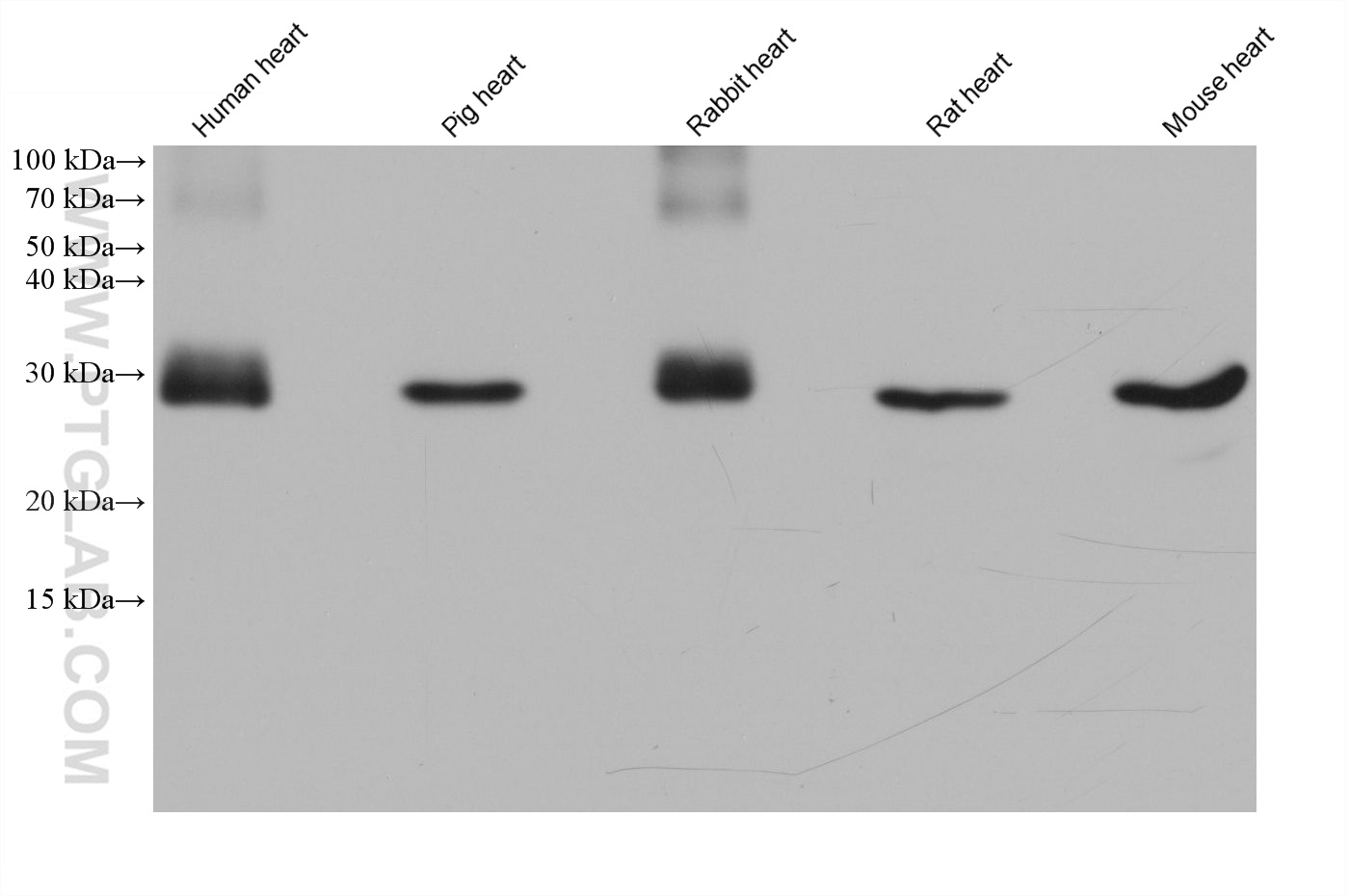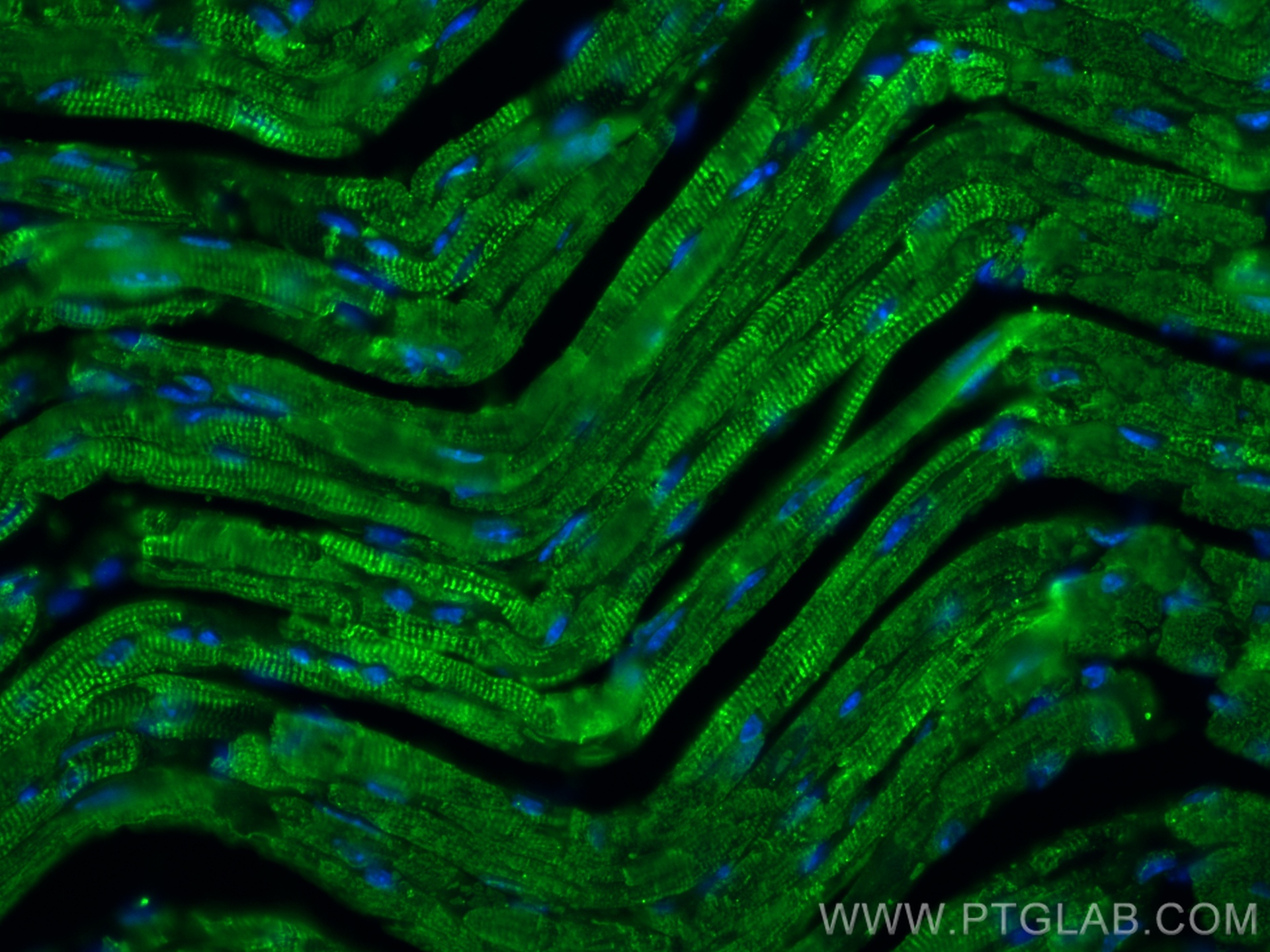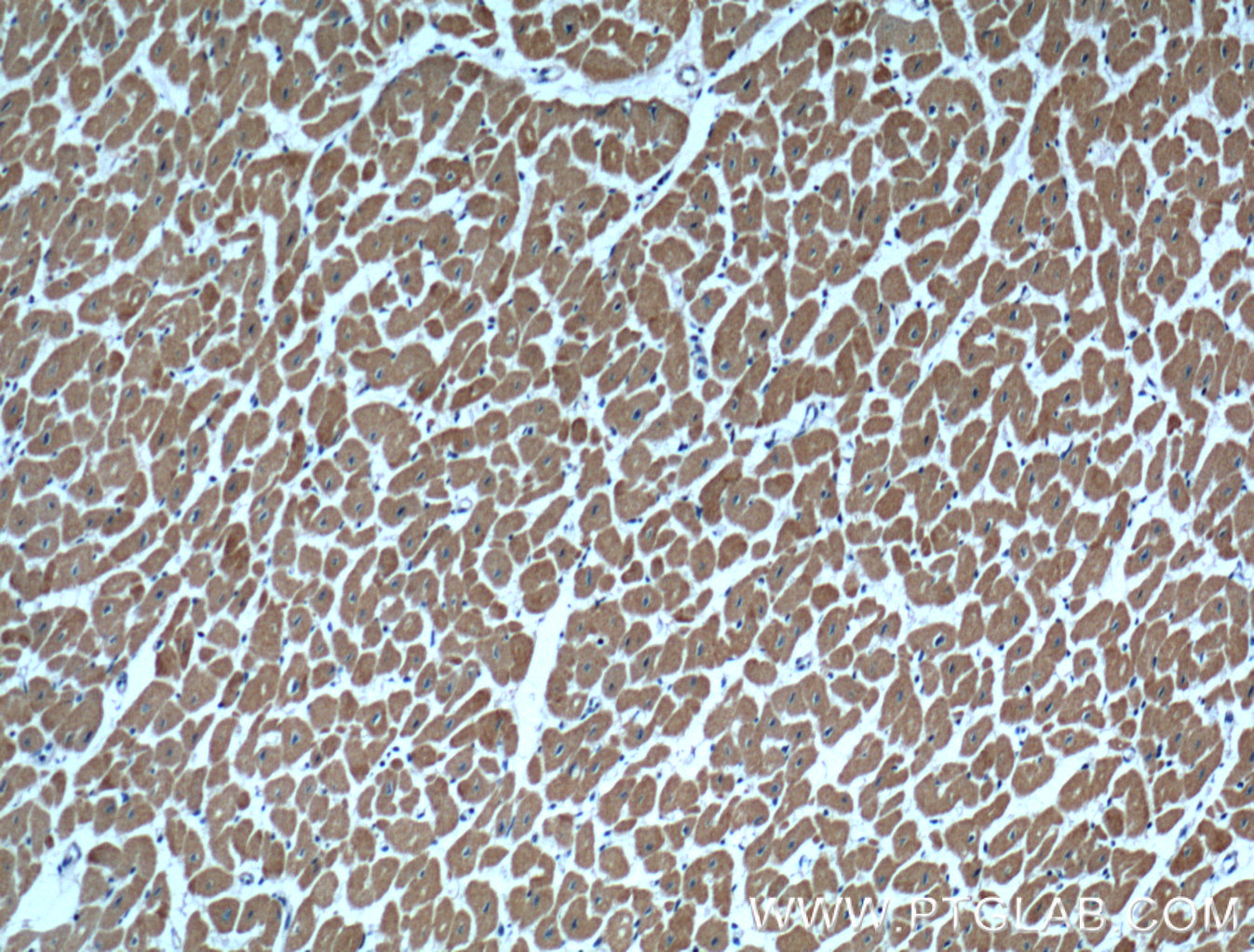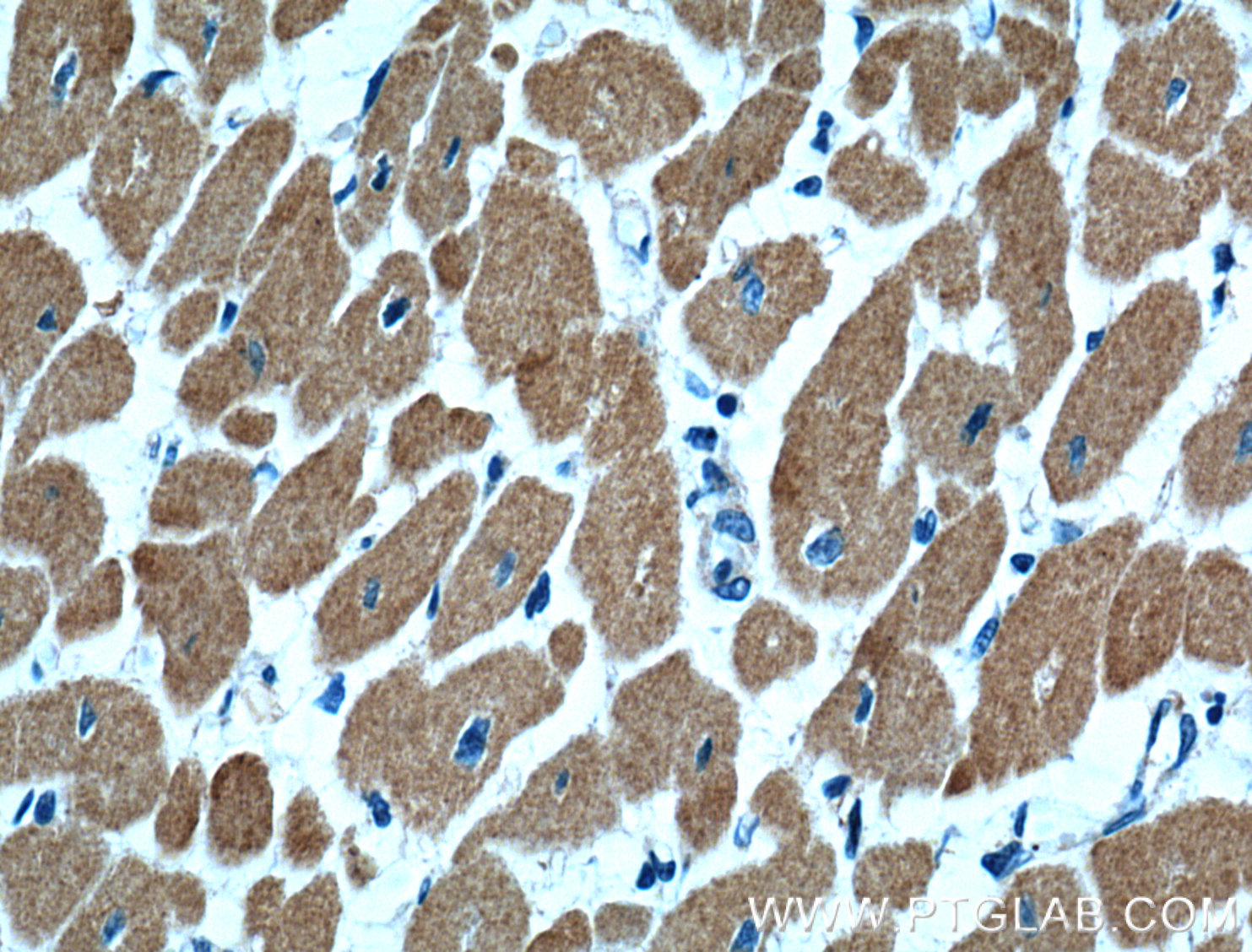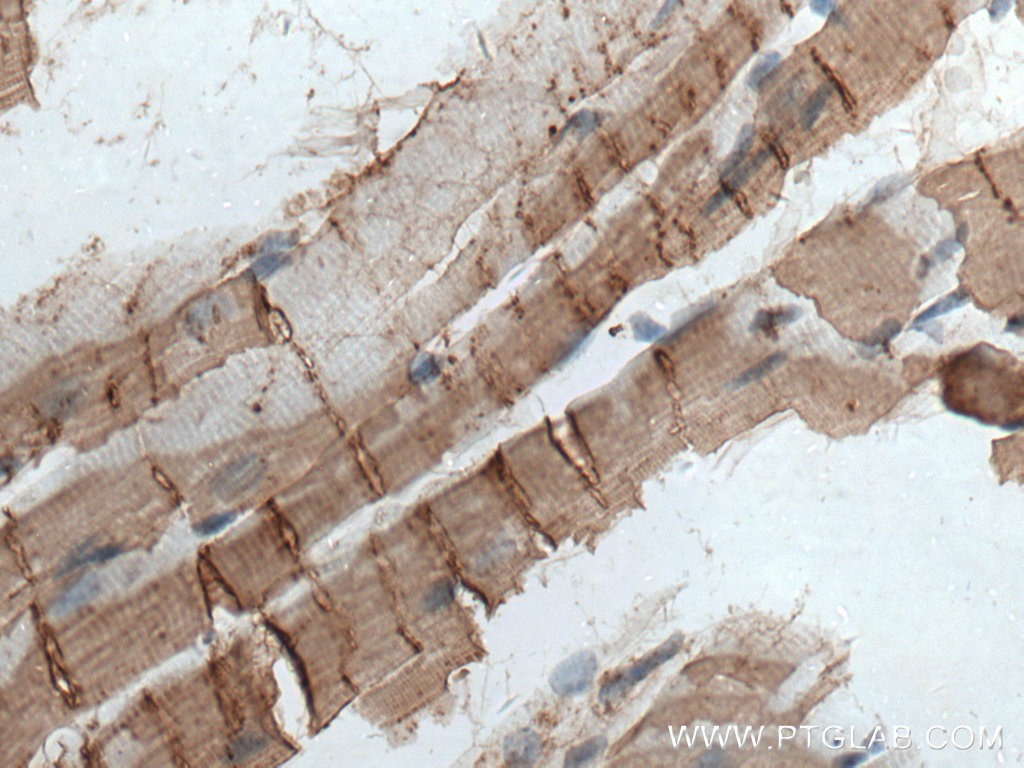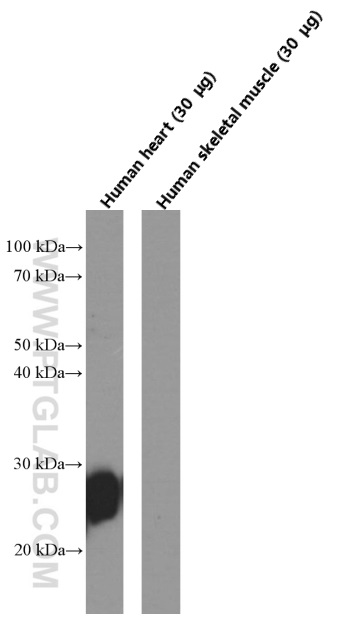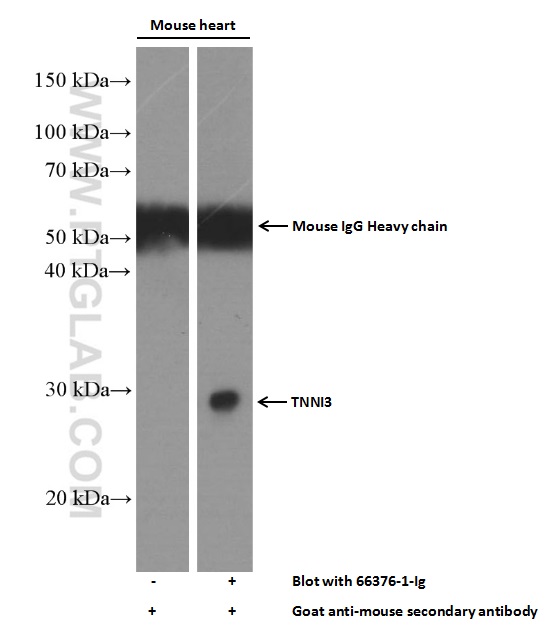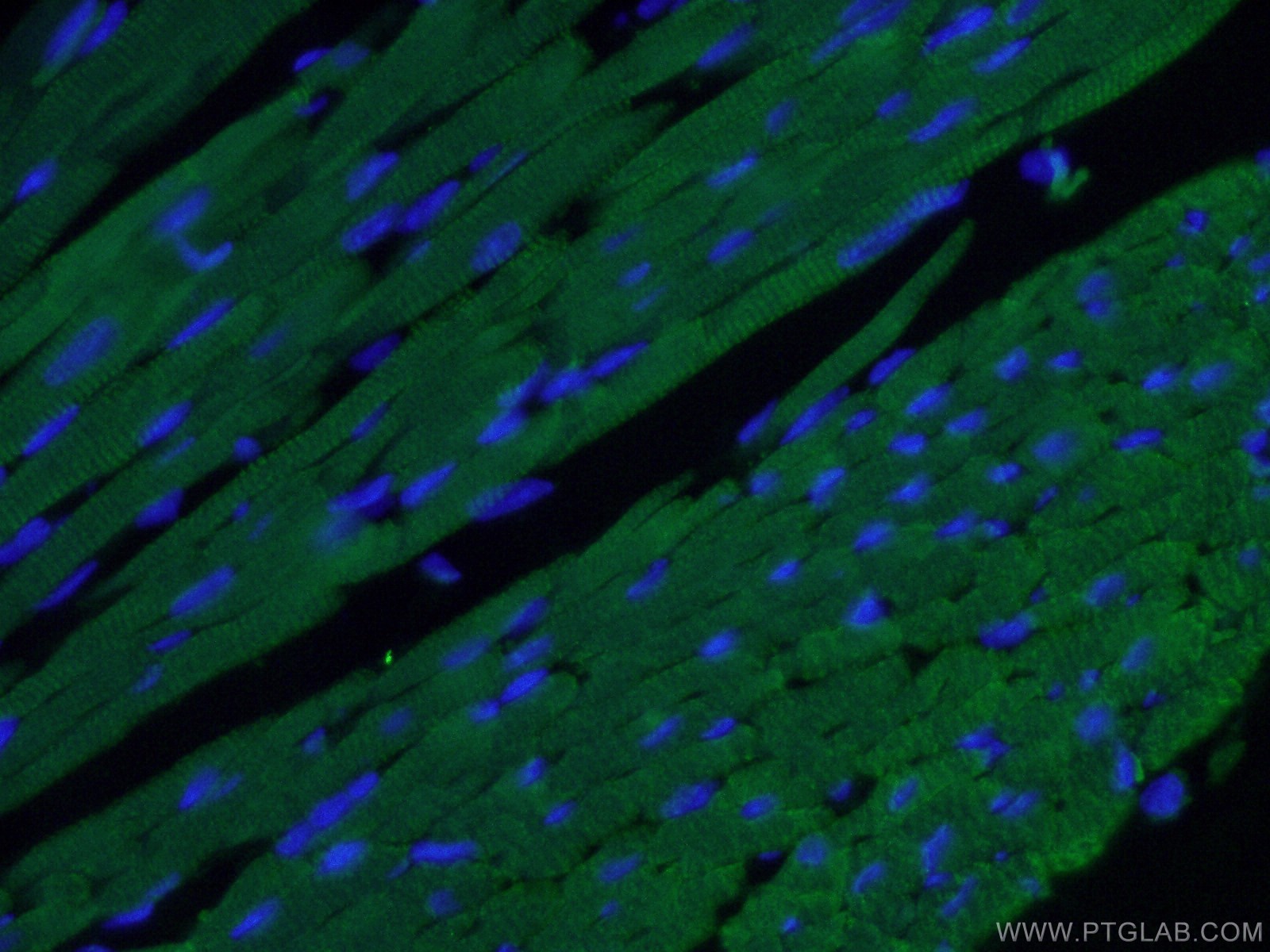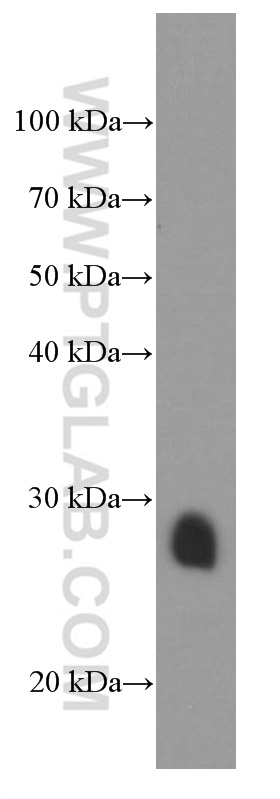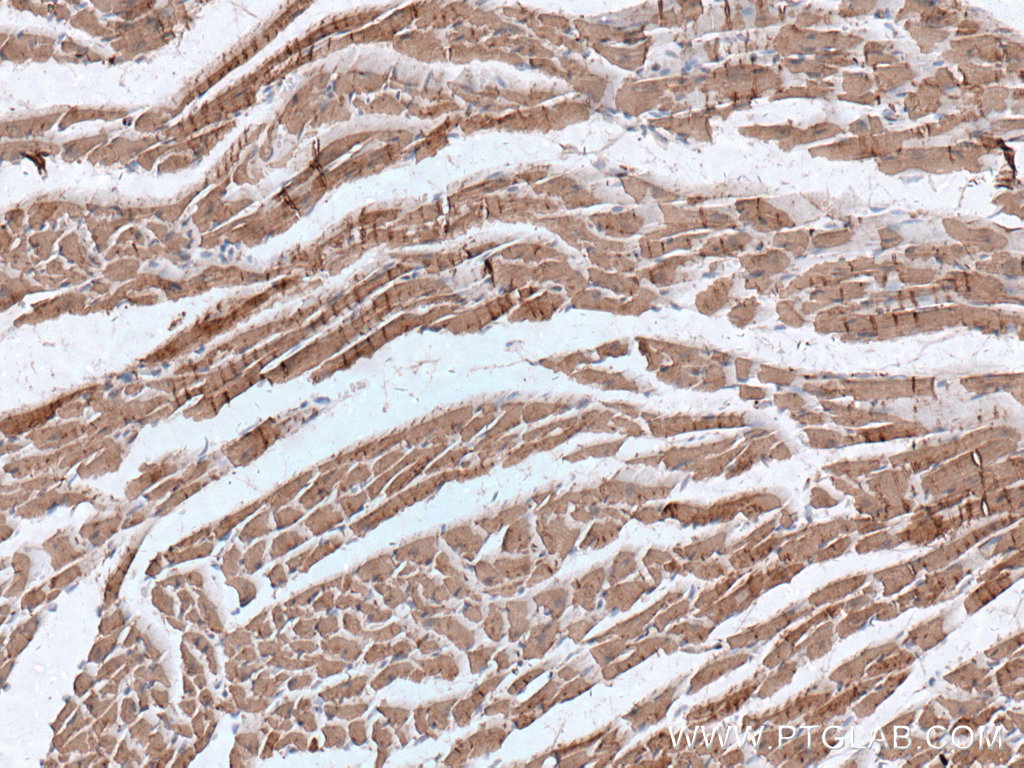验证数据展示
经过测试的应用
| Positive WB detected in | human heart tissue, rat heart tissue, mouse heart tissue, pig heart tissue, rabbit heart tissue |
| Positive IHC detected in | human heart tissue, mouse heart tissue Note: suggested antigen retrieval with TE buffer pH 9.0; (*) Alternatively, antigen retrieval may be performed with citrate buffer pH 6.0 |
| Positive IF-P detected in | mouse heart tissue |
推荐稀释比
| 应用 | 推荐稀释比 |
|---|---|
| Western Blot (WB) | WB : 1:5000-1:50000 |
| Immunohistochemistry (IHC) | IHC : 1:50-1:500 |
| Immunofluorescence (IF)-P | IF-P : 1:200-1:800 |
| It is recommended that this reagent should be titrated in each testing system to obtain optimal results. | |
| Sample-dependent, Check data in validation data gallery. | |
产品信息
66376-1-Ig targets Cardiac Troponin I in WB, IHC, IF-P, ELISA, ISFET applications and shows reactivity with human, mouse, rat, pig, rabbit samples.
| 经测试应用 | WB, IHC, IF-P, ELISA Application Description |
| 文献引用应用 | WB, IF, ISFET |
| 经测试反应性 | human, mouse, rat, pig, rabbit |
| 文献引用反应性 | human, mouse, rat, pig |
| 免疫原 |
CatNo: Ag16758 Product name: Recombinant human TNNI3 protein Source: e coli.-derived, PET28a Tag: 6*His Domain: 1-110 aa of BC096165 Sequence: MADGSSDAAREPRPAPAPIRRRSSNYRAYATEPHAKKKSKISASRKLQLKTLLLQIAKQELEREAEERRGEKGRALSTRCQPLELAGLGFAELQDLCRQLHARVDKVDEE 种属同源性预测 |
| 宿主/亚型 | Mouse / IgG1 |
| 抗体类别 | Monoclonal |
| 产品类型 | Antibody |
| 全称 | troponin I type 3 (cardiac) |
| 别名 | cTnI, TNNI3, 1D5D6 |
| 计算分子量 | 210 aa, 24 kDa |
| 观测分子量 | 26-28 kDa |
| GenBank蛋白编号 | BC096165 |
| 基因名称 | Cardiac Troponin I |
| Gene ID (NCBI) | 7137 |
| RRID | AB_2881753 |
| 偶联类型 | Unconjugated |
| 形式 | Liquid |
| 纯化方式 | Protein G purification |
| UNIPROT ID | P19429 |
| 储存缓冲液 | PBS with 0.02% sodium azide and 50% glycerol, pH 7.3. |
| 储存条件 | Store at -20°C. Stable for one year after shipment. Aliquoting is unnecessary for -20oC storage. |
背景介绍
Troponin I (TnI) is the inhibitory subunit of troponin, the structural protein involved in the regulation of striated muscle contraction. Cardiac Troponin I (cTnI) is produced by cardiac muscle. Two other TnI isoforms (slow sTnI and fast sTnI) are produced by slow-twitch and fast-twitch skeletal muscles, respectively. cTnI has been considered as one of the most specific and sensitive markers of myocardial damage like acute myocardial infarction (AMI) for decades. Detection of cTnI in serum is widely accepted as a diagnostic tool in acute coronary syndromes. This antibody is specific to cTnI, but not cross-react with skeletal TnI.
实验方案
| Product Specific Protocols | |
|---|---|
| IF protocol for Cardiac Troponin I antibody 66376-1-Ig | Download protocol |
| IHC protocol for Cardiac Troponin I antibody 66376-1-Ig | Download protocol |
| WB protocol for Cardiac Troponin I antibody 66376-1-Ig | Download protocol |
| Standard Protocols | |
|---|---|
| Click here to view our Standard Protocols |
发表文章
| Species | Application | Title |
|---|---|---|
ACS Nano Collagen-Targeting Self-Assembled Nanoprobes for Multimodal Molecular Imaging and Quantification of Myocardial Fibrosis in a Rat Model of Myocardial Infarction | ||
Biosens Bioelectron A handheld testing device for the fast and ultrasensitive recognition of cardiac troponin I via an ion-sensitive field-effect transistor | ||
Stem Cell Reports Physiological calcium combined with electrical pacing accelerates maturation of human engineered heart tissue | ||
Stem Cell Res Ther Intravenously transplanted mesenchymal stromal cells: a new endocrine reservoir for cardioprotection. | ||
J Cell Mol Med Scoparone alleviates Ang II-induced pathological myocardial hypertrophy in mice by inhibiting oxidative stress. |

